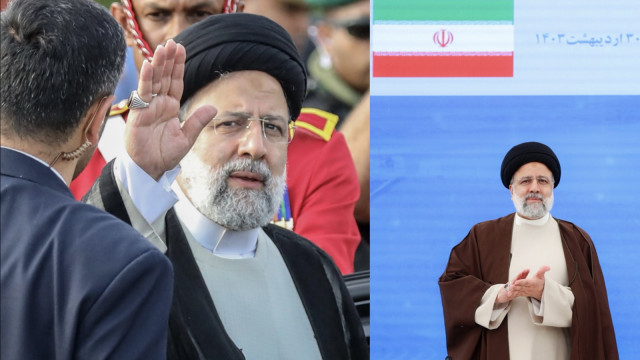President Ebrahim Raisi has led Iran since 2021 amid international turmoil and internal strife, before his sudden death in a helicopter crash.
At the age of 63, Raisi was considered one of the favourites to ascend to the Islamic Republic's most important post - that of supreme leader, held for 35 years by 85-year-old Ayatollah Ali Khamenei.
His death, however, opened a period of political uncertainty, whose first challenge will be choosing his successor by universal suffrage in a runoff that must take place in the Islamic Republic of Iran within 50 days.
Ebrahim Raisi was considered one of the pillars of the conservative and ultra-conservative camps that have controlled all the levers of power since 2020.
Raisi was for many years a prosecutor with direct responsibility for the executions of political prisoners in the 1980s, and subsequently under US sanctions. His term would expire next year. The president of Iran is second in the hierarchy of power.
Presenting himself as a defender of the underprivileged and the fight against corruption, he was elected on 18 June 2021 in the first round of a run-off, marked by a record number of abstentions for a presidential election and the absence of strong contenders.
He succeeded the moderate Hassan Rouhani, who defeated him in the 2017 presidential election and was ineligible for re-election after two consecutive terms.
Reaching the middle of his term, Raisi emerged stronger than parliamentary elections held in March - the first national elections since the protest movement that rocked Iran in late 2022 following the death of Mahsa Amini, a young woman arrested for not complying with the country's strict dress code.
The Iranian president then hailed "another historic defeat inflicted on Iran's post-rebellion enemies" in 2022, referring to Western nations and foreign-based opponents.
The parliament, which will take office on May 27, will be largely under the control of the conservative and ultraconservative camps that support his government.
In recent months, Raisi has portrayed himself as a staunch opponent of Israel, the Islamic Republic's sworn enemy, having given his support to the Palestinian Islamist movement Hamas since Israel's war on the Gaza Strip began on October 7.
Thus, he justified the unprecedented attack launched by Iran against Israel on April 13 with the help of 350 drones and missiles, most of which were intercepted with the help of the US and several other allied countries.
Raisi was included on a US blacklist of Iranian officials sanctioned for "complicity in serious human rights abuses" - charges that authorities in Tehran have dismissed as invalid.
Born in November 1960 in the Shiite holy city of Mashhad, Raisi rose through the ranks of the judiciary over three decades, having been appointed chief prosecutor of Karaj, near Tehran, at the age of 20, following the victory of the 1979 Islamic Revolution.
Then, from 1989 to 1994, he was the chief prosecutor of Tehran, and from 2004 to 2014, when he was appointed the country's chief prosecutor, he was the deputy head of the judiciary.
In 2016, Supreme Leader Ali Khamenei put him in charge of the influential Astan-e Quds Razavi Foundation, which manages the Imam-Reza mausoleum in Mashhad. Three years later, he headed the judiciary. /BGNES







